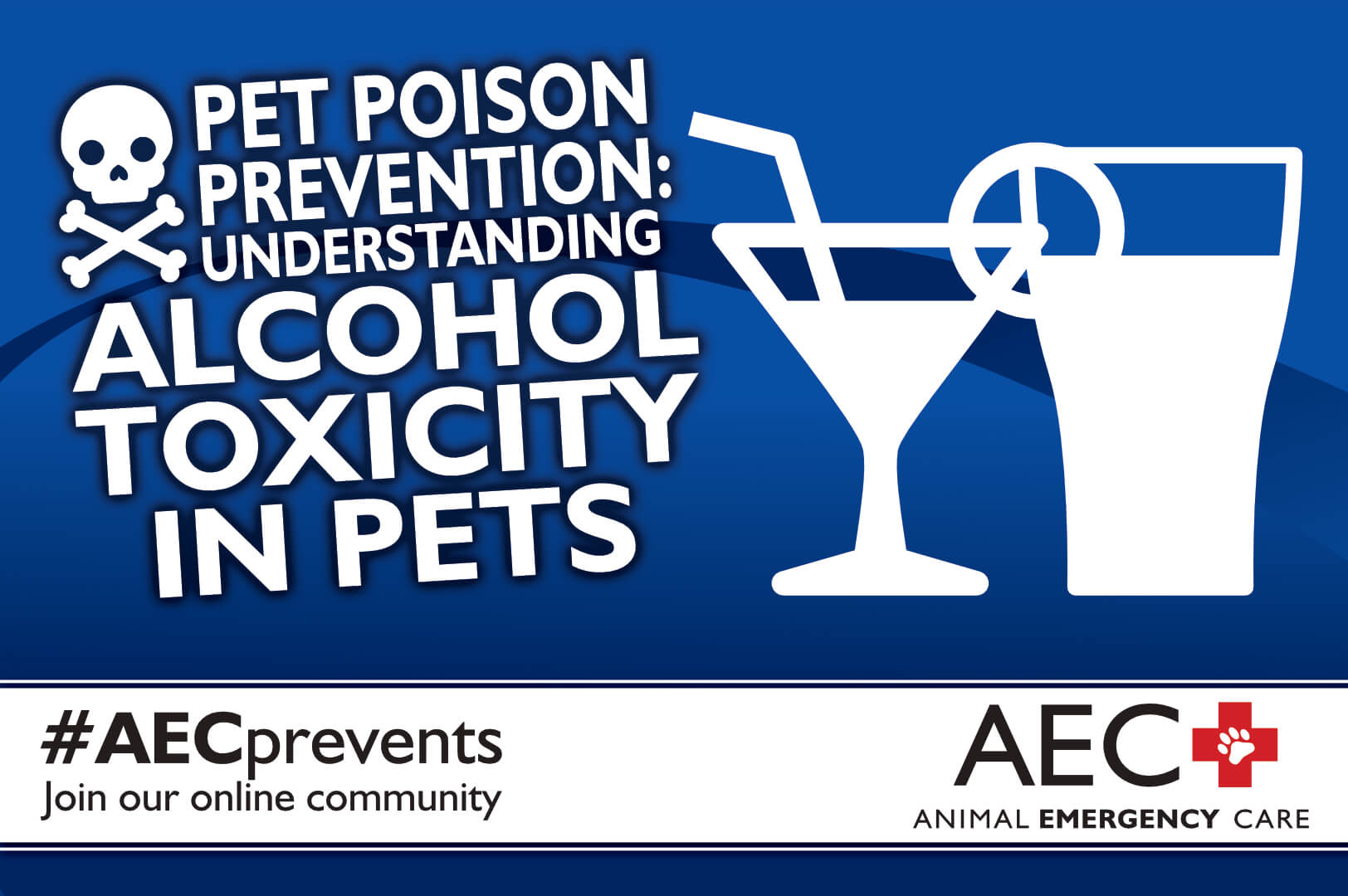Family gatherings with festive foods and drinks including cocktails and special libations are a common part of the holiday season, and many pet owners want to ensure their four-legged companions are included in the celebrations. However, kitchen chaos, large family meals, and a revolving door of guests can lead to pet injuries or accidental poisonings. Additionally, many pets like to serve as the cleanup crew for dropped food or spilled drinks. Ingestion of human food and drinks and especially alcohol-based beverages or treats can lead to potentially life-threatening toxicity in your pet. Our Animal Emergency Care team wants pet owners to understand the dangers of alcohol and what to do if your pet accidentally becomes poisoned.
What is alcohol toxicity in pets?
Alcohol toxicity is a common pet poisoning that can occur from ingestion, skin absorption, or inhalation of alcohol or alcohol-containing products. Dogs and cats of any sex or age are at risk however kittens and puppies have an increased risk because of their small size and undeveloped organ systems. Alcohol poisoning primarily affects a pet’s gastrointestinal (GI) system, respiratory system, central nervous system, and heart. Other organ systems including the liver and kidneys also may be affected. Pets who have severe poisoning are at risk for death. The most common sources of pet alcohol poisoning include:
- Ethanol — Common sources of ethanol include alcoholic drinks, desserts flavored with alcohol, fermented fruits, unbaked yeast dough, some liquid medications, and mouth washes.
- Methanol — The most common sources of methanol include windshield fluids, some gasoline additives, and some paint solvents.
- Isopropanol — This alcohol has twice the potency of ethanol or methanol. Common sources include 70 percent rubbing alcohol, hand sanitizer, glass cleaners, perfumes or colognes, detergents, antifreeze, and some grooming products or flea sprays.
Alcohol toxicity signs in pets
Signs of alcohol toxicity vary in severity and are dependent on the type of alcohol ingested, the amount, and the pet’s size. It may take some time for signs of toxicity to appear depending on whether a pet has eaten recently or not. Alcohol toxicity signs may include:
- Staggering
- Lack of coordination
- Excitement
- Excess drooling
- Nausea and vomiting
- Diarrhea
- Increased thirst and frequency of urination
- Depression
- Lethargy
- Difficulty breathing
- Low body temperature
- Abnormal heart rhythm
- Seizures
- Coma
Alcohol toxicity diagnosis and treatment in pets
You must bring your pet in for immediate veterinary care if you observe them ingesting or being exposed to alcohol because some pets will not show immediate signs of poisoning. An alcohol toxicity diagnosis is based on a pet’s history of ingestion or contact with alcohol and clinical signs. Your veterinarian may induce your pet to vomit if the ingestion has occurred recently, but you should never induce vomiting unless directed to do so by a veterinarian. Alcohol can lead to dehydration, electrolyte abnormalities, liver and kidney problems, and low blood sugar. Your veterinarian may recommend blood work to monitor your pet’s overall organ health. Poisoned pets likely will require an extended hospital stay for emergency care, treatment, and continued observation which may include:
- Heart rate and blood pressure monitoring
- Body temperature monitoring and regulation with specialized warming pads
- Oxygen therapy
- Intravenous (IV) fluids to prevent dehydration and electrolyte imbalances
- IV dextrose for low blood sugar
- Liver-protecting medications
- Anti-nausea medication
- Gastroprotectant medication
- Anti-seizure medication
Financial planning for treatment of alcohol toxicity in pets
Pets being treated for severe alcohol toxicity often require an extended hospital stay and several checkups which can result in a large veterinary bill. Pet health insurance like Trupanion will ensure you can cover the costs of your pet’s emergency care for an accidental poisoning. Trupanion can pay your veterinary clinic directly which eliminates the need to submit paperwork and wait for reimbursements. Other available payment options include:
- Care Credit
- Scratch Pay
- Pet health savings accounts
- Short-term loans
Alcohol toxicity prevention in pets
Keeping any alcoholic beverages or products containing alcohol out of your pet’s reach is the best way to prevent them from being accidentally poisoned. Never feed your pet any desserts or drinks that contain alcohol because even a small amount can be dangerous. Other prevention tips include:
- Keeping your pet out of the kitchen when handling raw yeast dough
- Placing a pet-proof lid on all garbage cans to prevent contact or ingestion of alcohol-containing products
- Storing all household products with alcohol in a pet-proof location
- Quickly cleaning up any spilled alcoholic drinks or products
- Consulting with your veterinarian before spraying any alcohol-based grooming or flea products on your pet
If you suspect your pet has ingested alcohol or if they are showing alcohol toxicity signs immediately bring them to Animal Emergency Care if it is after hours, or call your family veterinarian. #AECprevents
Sources:
https://www.petpoisonhelpline.com/poison/alcohol
https://veterinarypartner.vin.com/default.aspx?pid=19239&id=4952310
https://www.merckvetmanual.com/toxicology/household-hazards/alcohols


